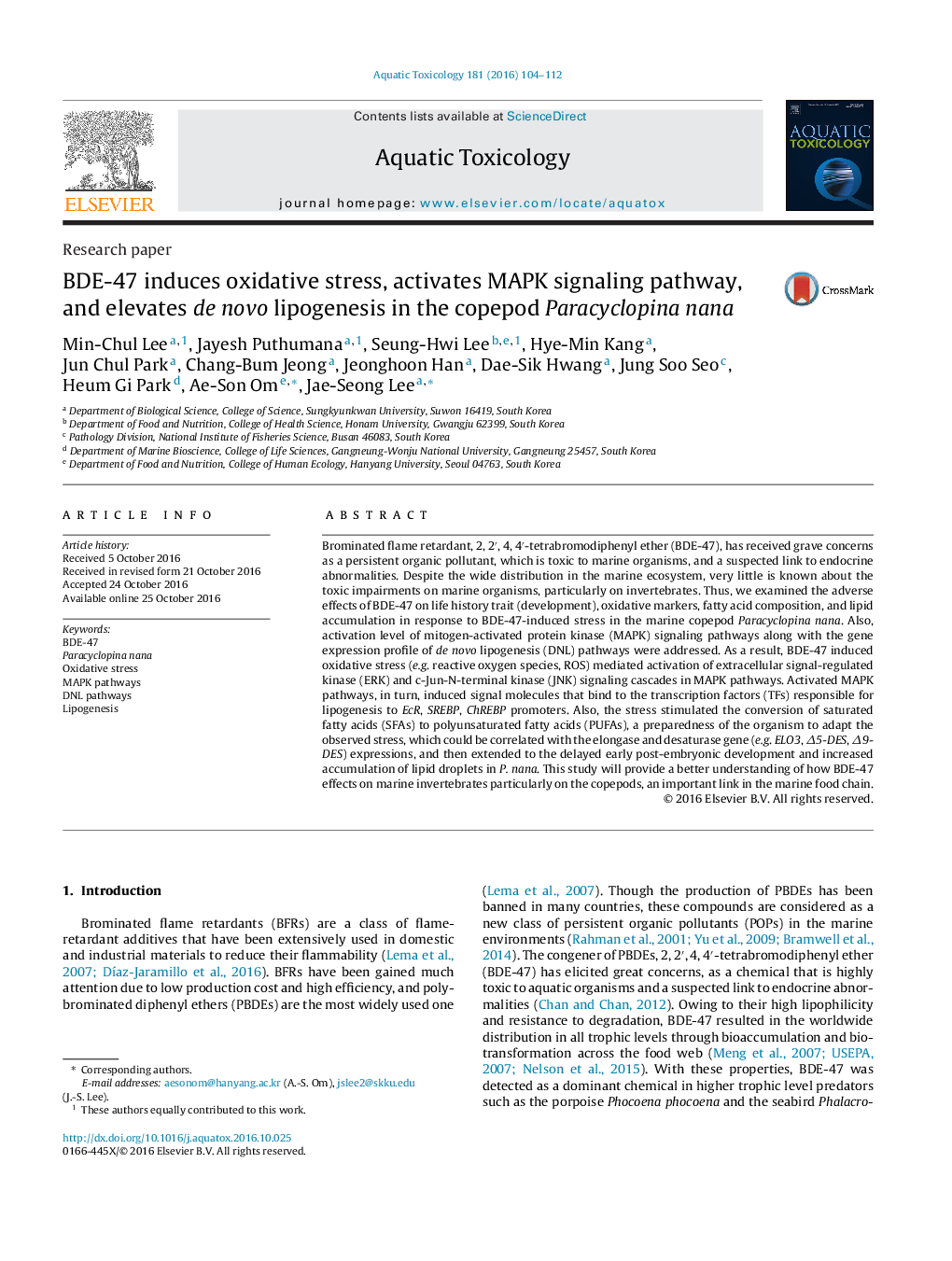| Article ID | Journal | Published Year | Pages | File Type |
|---|---|---|---|---|
| 6381793 | Aquatic Toxicology | 2016 | 9 Pages |
â¢Adverse effects of BDE-47 on life history trait with oxidative stress markers.â¢Fatty acid composition and lipid droplets were changed in response to BDE-47.â¢BDE-47 induced oxidative stress-mediated activation of MAPK signalling cascade.â¢Activated MAPK pathways are associated with de novo lipogenesis.
Brominated flame retardant, 2, 2â², 4, 4â²-tetrabromodiphenyl ether (BDE-47), has received grave concerns as a persistent organic pollutant, which is toxic to marine organisms, and a suspected link to endocrine abnormalities. Despite the wide distribution in the marine ecosystem, very little is known about the toxic impairments on marine organisms, particularly on invertebrates. Thus, we examined the adverse effects of BDE-47 on life history trait (development), oxidative markers, fatty acid composition, and lipid accumulation in response to BDE-47-induced stress in the marine copepod Paracyclopina nana. Also, activation level of mitogen-activated protein kinase (MAPK) signaling pathways along with the gene expression profile of de novo lipogenesis (DNL) pathways were addressed. As a result, BDE-47 induced oxidative stress (e.g. reactive oxygen species, ROS) mediated activation of extracellular signal-regulated kinase (ERK) and c-Jun-N-terminal kinase (JNK) signaling cascades in MAPK pathways. Activated MAPK pathways, in turn, induced signal molecules that bind to the transcription factors (TFs) responsible for lipogenesis to EcR, SREBP, ChREBP promoters. Also, the stress stimulated the conversion of saturated fatty acids (SFAs) to polyunsaturated fatty acids (PUFAs), a preparedness of the organism to adapt the observed stress, which could be correlated with the elongase and desaturase gene (e.g. ELO3, Î5-DES, Î9-DES) expressions, and then extended to the delayed early post-embryonic development and increased accumulation of lipid droplets in P. nana. This study will provide a better understanding of how BDE-47 effects on marine invertebrates particularly on the copepods, an important link in the marine food chain.
